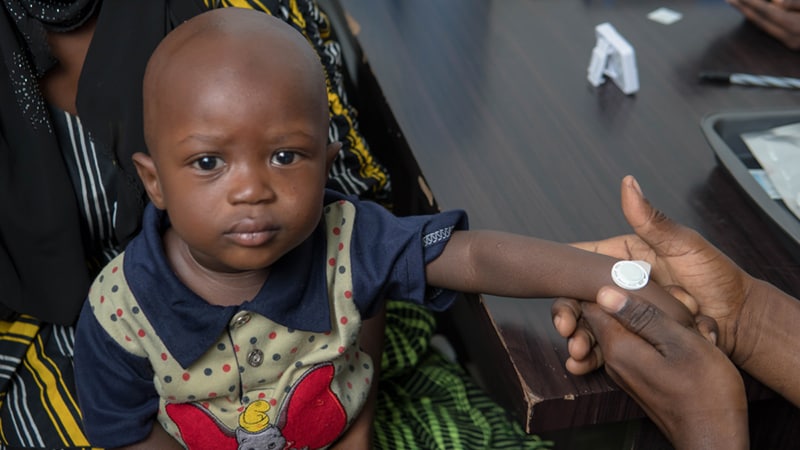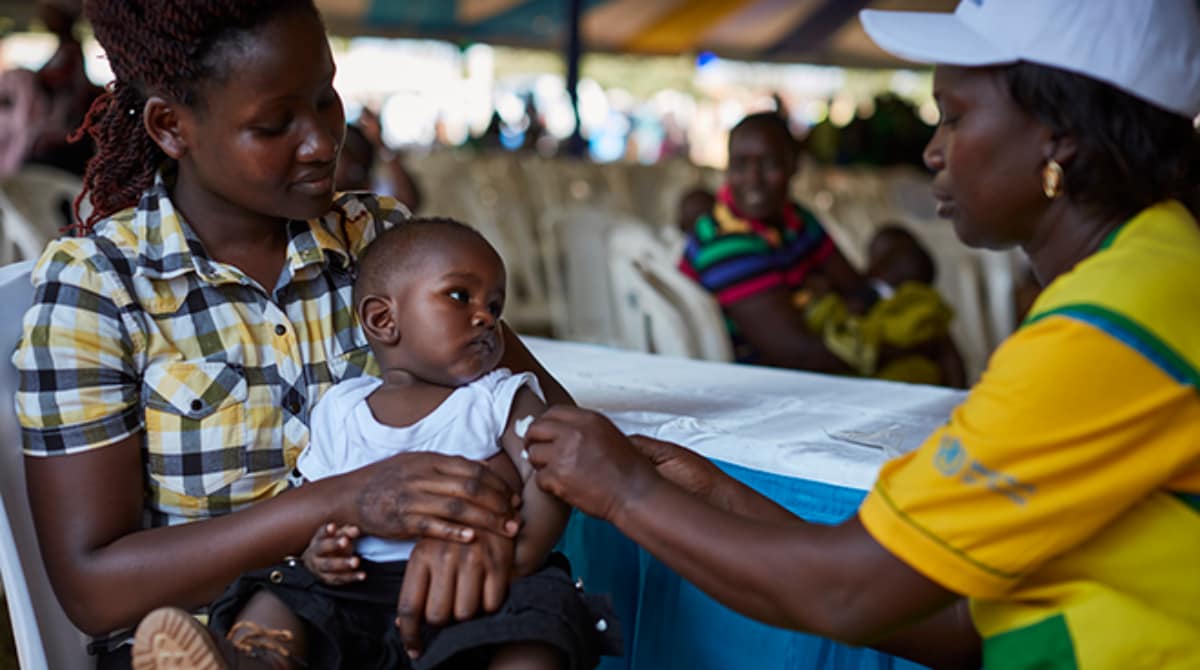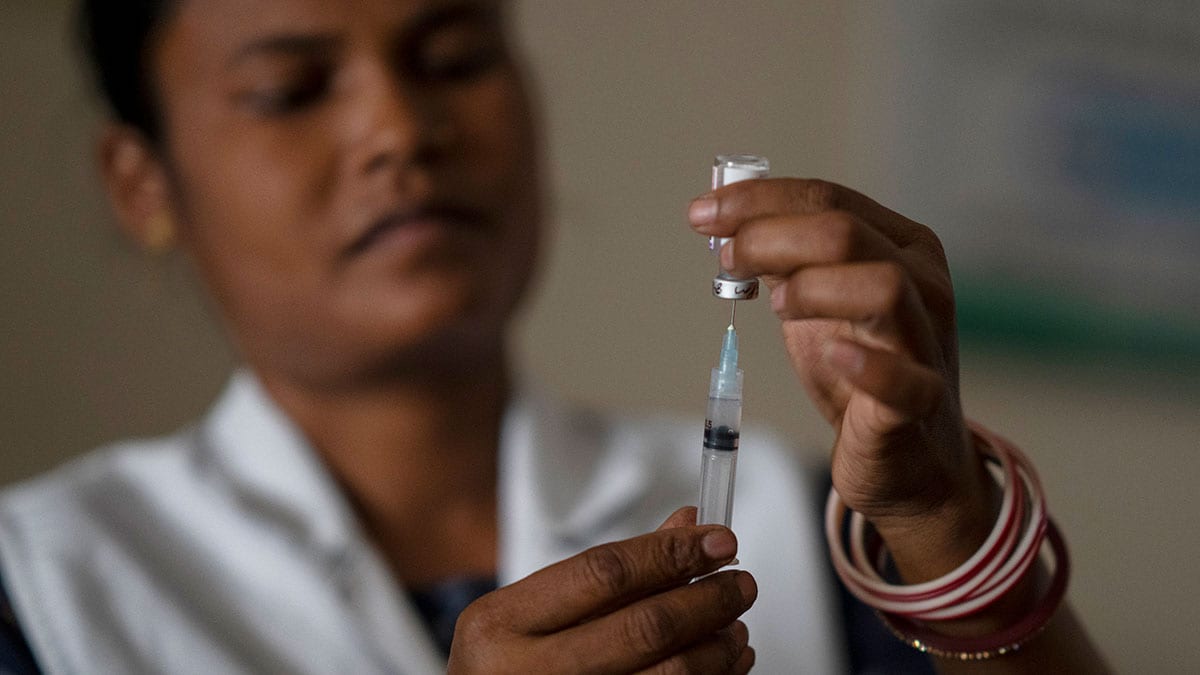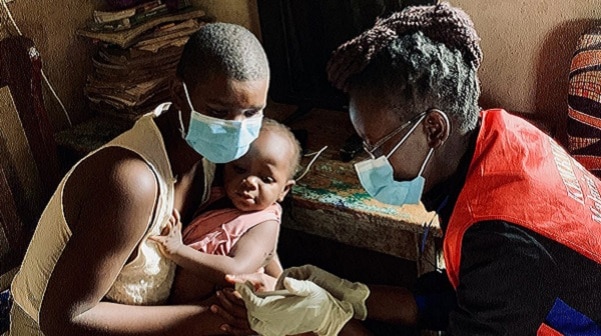Key points
- Although measles and malaria have been declared eliminated in the United States, outbreaks still happen.
- The way to get ahead of diseases like measles and malaria is to prevent outbreaks before they spread across borders.
- Because of our global investments in research and innovation, we now have new types of vaccines to stop measles and malaria and protect communities everywhere.
Helping eliminated diseases stay eliminated

MRC Unit The Gambia at LSHTM.
Measles and malaria have both been declared eliminated in the United States. But headline-making outbreaks have threatened to overturn that status.
CDC's global investments have led to game-changing vaccines that will help these diseases stay eliminated in the U.S. while saving more lives across the globe.
Taking the sting out of measles vaccination
In early 2024, a measles outbreak in Chicago raised the alarm for U.S. public health experts. Previously, in 2019, a travel-related measles outbreak in New York grew so large that it threatened the nation's measles elimination status.
We are living in a particularly dangerous moment, when global rates of routine childhood vaccination have fallen due to the COVID-19 pandemic. This puts every country at greater risk for outbreaks of measles and other vaccine-preventable diseases. Measles travels quickly, but we can help stop it from crossing borders by reaching more children with vaccines.
CDC and research partners recently piloted a new measles-rubella microneedle patch vaccine that can be delivered door-to-door, takes five minutes, and is as easy to apply as a small bandage. Initial studies have shown that the new patch vaccine is safe and works as well as a shot for preventing measles. Because it's easier to store and use than traditional injections, the patch could one day help get vaccines to more children, even in remote areas of the world.
Although the patch vaccine is still in development, innovations like these move us closer to a future where we eliminate measles not just in the U.S. but everywhere, for everyone.
Did you know?
The breakthrough: a first-ever malaria vaccine

Photo courtesy of WHO.
In summer 2023, the United States saw its first cases of locally acquired malaria in twenty years. This happened when mosquitoes that are native to the United States bit returning travelers who were sick. These mosquitoes picked up the malaria parasite and passed the disease to other people in the community, starting an outbreak.
CDC supports the global fight to prevent and eliminate malaria. Through a decades-long partnership with the Kenya Medical Research Institute (KEMRI), CDC worked on the development of the first-ever malaria vaccine. The data were so strong that it led to the early release of recommendations to adopt the new vaccine, known as RTS,S.
In late 2023, the World Health Organization added a second malaria vaccine, R21, to its recommendation list. These vaccines add an important tool in the toolbox in preventing malaria worldwide.
CDC is changing the way the world detects invasive mosquitos
CDC’s global expertise is at the ready
Measles and malaria outbreaks in the United States demonstrate that a health threat anywhere is a threat everywhere. Eliminated diseases won't stay eliminated as long as they remain in the world.
CDC has the know-how and commitment to fight diseases globally. CDC's global health experts remain ready to support state health departments when diseases like measles or malaria try to take hold in America.
At the same time, CDC's long-term investments, partnerships, and innovations are working to reduce the burden of these diseases around the world.


